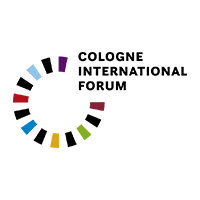Conflict-Induced Displacement and Socio-Economic Resilience: Learning From Neglected Conflicts in Cameroon and Myanmar
The currently estimated 281 million migrants worldwide constitute 3.6% of the global population (IOM 2022). Of these migrants, 89.5 million have been forcibly displaced (IOM 2022). This figure is larger than the domestic population of all but 16 countries in the world. Despite this overwhelming number of displaced persons, political and humanitarian measures to address forced migration are often ad-hoc and largely neglect the socio-economic aspects of this displacement. To better manage forced migration, it is important to understand migrants’ socio-economic situations, including their legal and economic integration in the host region as well as their economic contributions in the conflict zone. Research-based analyses and policy recommendations for developing resilient economic and livelihood systems will be an important academic contribution to handling conflict-induced migration and facilitating the achievement of the UN Sustainable Development Goals (SDGs).
At the heart of this project are two violent conflicts that have received limited attention in international public debates despite having caused significant displacement. First, the Anglophone conflict in Cameroon (ongoing since 2016) has displaced about 1 million people, most of whom have migrated within the country (OCHA 2022). It has repeatedly been ranked among the world’s most neglected displacement crises by the Norwegian Refugee Council (2022). Second, the recent military coup in Myanmar (2021) has resulted in the displacement of 800,000 people. This is in addition to displacements caused by the long-simmering civil war and the recent Rohingya displacement crisis (UNHCR 2022b). International observers have stressed the risks of politically neglecting the conflict (The Economist 2022). By engaging with these conflicts and the economic role of displaced persons, our cluster will help to identify: a) the humanitarian aid required to address the most basic needs of displaced persons; b) possible measures to be taken by national governments and the international community to address the root causes of the conflicts in order to avoid further displacement and human suffering; and c) the key role of displaced persons in taking charge of their own futures and contributing economically to their host and home countries.
The International Research Cluster “Conflict-induced displacement and socio-economic resilience: Learning from neglected conflicts in Cameroon and Myanmar” will bring together experienced researchers from the University of Bamenda (Cameroon), Chulalongkorn University and Chiang Mai University (Thailand), and the University of Cologne (Germany). Drawing on research approaches across a wide range of disciplines, these researchers will jointly and comparatively study the role of forced migrants’ livelihood and remittance strategies in developing socio-economic resilience in the host and home regions. Moreover, the transnational and collaborative nature of the cluster enables researchers to explore the role of Higher Education Institutions in preventing conflict, supporting scholars at risk, and achieving the UN sustainable development goals.
